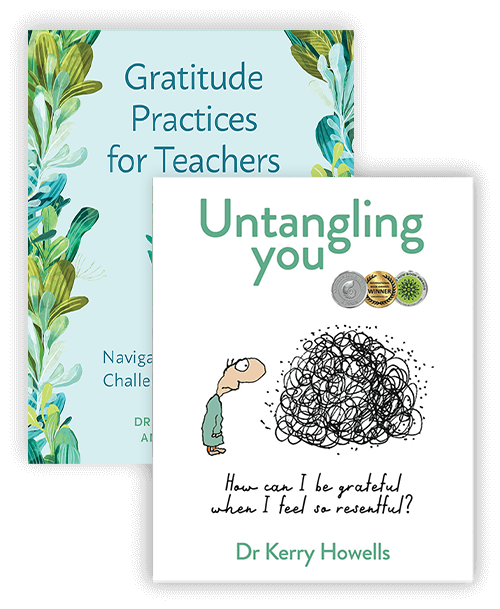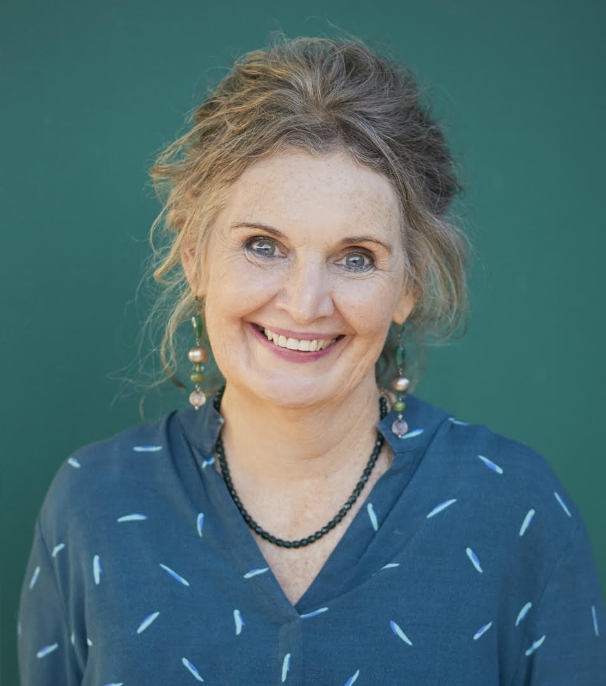 This year, I’ve had the good fortune to work on a research project investigating the outcomes of an increased focus on gratitude by educators in leadership roles in early childhood centres. This has been a collaborative project with my colleague, Dr Megan Gibson, from Queensland University of Technology and the Anglican Schools Commission, Brisbane.
This year, I’ve had the good fortune to work on a research project investigating the outcomes of an increased focus on gratitude by educators in leadership roles in early childhood centres. This has been a collaborative project with my colleague, Dr Megan Gibson, from Queensland University of Technology and the Anglican Schools Commission, Brisbane.
A common theme is arising from the interview data. When asked what is the biggest change they have noticed, most research project participants immediately respond with “I feel calmer”. I constantly hear responses like “I can’t believe how calm I feel” or “everyone around me is noticing that I am calmer in the way I approach things”.
What is it about gratitude that brings us into a calmer state? How can becoming more open to what we receive from others and the world around us, and then being motivated to express this gratitude in action, give us the tranquillity that most of us are seeking?
Firstly, gratitude gives us a sense of abundance. We turn our attention to what we already have rather than striving for more, or comparing ourselves with others, or wishing things were otherwise. We feel that we have more than enough. We are more than enough.
Gratitude brings us more fully into the present moment and frees us from worry about the past or from fretting about the future. In a reciprocal way, the joy that the present moment gives us when we are in a state of gratitude has a generative power to enable us to want to be in the present more often.
Researchers Watkins & McCurrach (2016) demonstrate in their ‘amplification theory of gratitude’ that gratitude has the potential to:
- Amplify our awareness of beneficial events
- Amplify our interpretation of beneficial events
- Amplify our awareness of the good in others
- Amplify the good we experience in positive events
- Amplify our awareness and experience of good memories.
Each one of these states has the potential to turn us away from the things that cause us unrest, and in particular from those things we feel resentful about; resentment being the biggest thief of a state of calmness.
When we focus on what we receive from others, our gratitude towards them not only gives us a greater sense of interconnectedness, but it can also make us less self-absorbed and less consumed by our own worries. We are more attentive to how we can give back to others.
In the sense of ‘deep gratitude’ that we explore in my workshops, we practise gratitude not so that we can change others or the circumstances around us, but so that we can change ourselves. For things to change, first I must change. We can’t change others, nor do we really have the right to think that this is our responsibility. But we can change ourselves. We can feel calmer because of our sense of ownership and renewed focus on what is achievable. Moreover, if we are focusing on change in others, we may miss physiological and psychological changes in ourselves. We may miss the calmness that gratitude can bring us.
This was demonstrated beautifully by one of the Early Childhood directors who took up the practice of expressing more gratitude to the parents of the children in her care. She started seeing what they were doing as parents and “looking for the gifts that they were giving me with their children”.
“I went from thinking about my view of what the parents should be doing and started seeing them as being parents just like me…just a mum (or a dad) trying to get through each day the best way they can. So, I changed the way that I looked at the world, and that’s changed the way it’s reflected back to me.”
Although it’s usually very difficult to express gratitude when we are going through a hard time, deep gratitude invites a response to adversity as a place to grow and bring about personal change. This impacts on our ability to more gently ride the ups and downs of life and to step out of blaming others for what is happening.
Moreover, there is a certain unrest we feel at a deep, subconscious level, if we do not express gratitude to those to whom we know we should be expressing gratitude. We might be too busy or distracted and not immediately act on what we know at the core of our being – the thanks that should be said or expressed. Then time passes and we may feel it’s too late.
I’m so delighted that the majority of my research participants report that deepening their gratitude helps them feel calm, and especially that those around them are also being impacted by this. A calm state has to be better for our health and our relationships. It’s crucial to inspired and creative thinking, and to living our true potential.
Reference:
Watkins, P. & McCurrach, D. (2016). Exploring how gratitude trains cognitive processes important to wellbeing. In David Carr (ed.) Perspectives on gratitude: An interdisciplinary approach. New York: Routledge. Pp. 27-40






